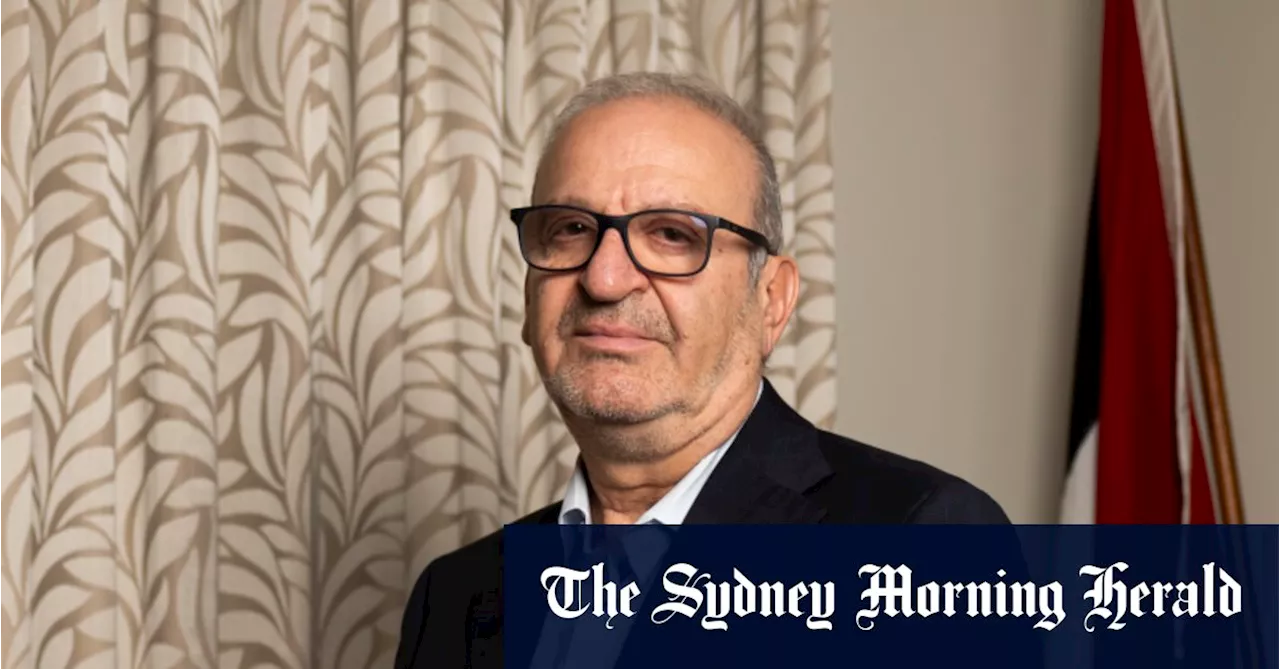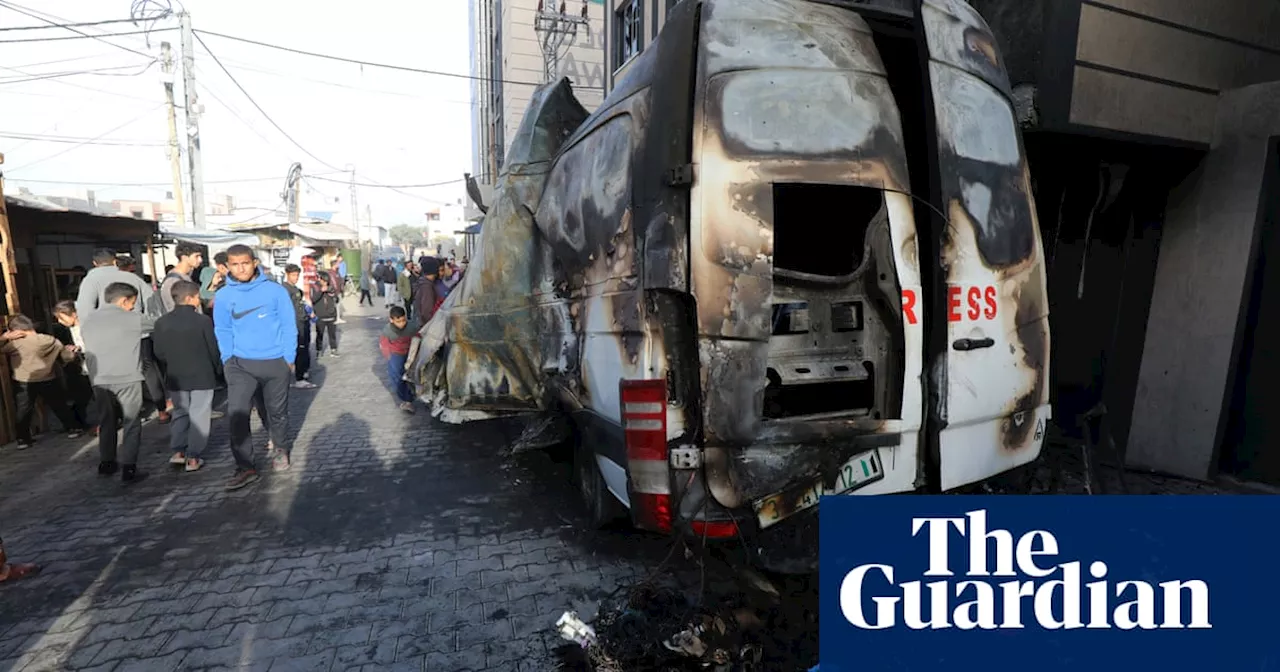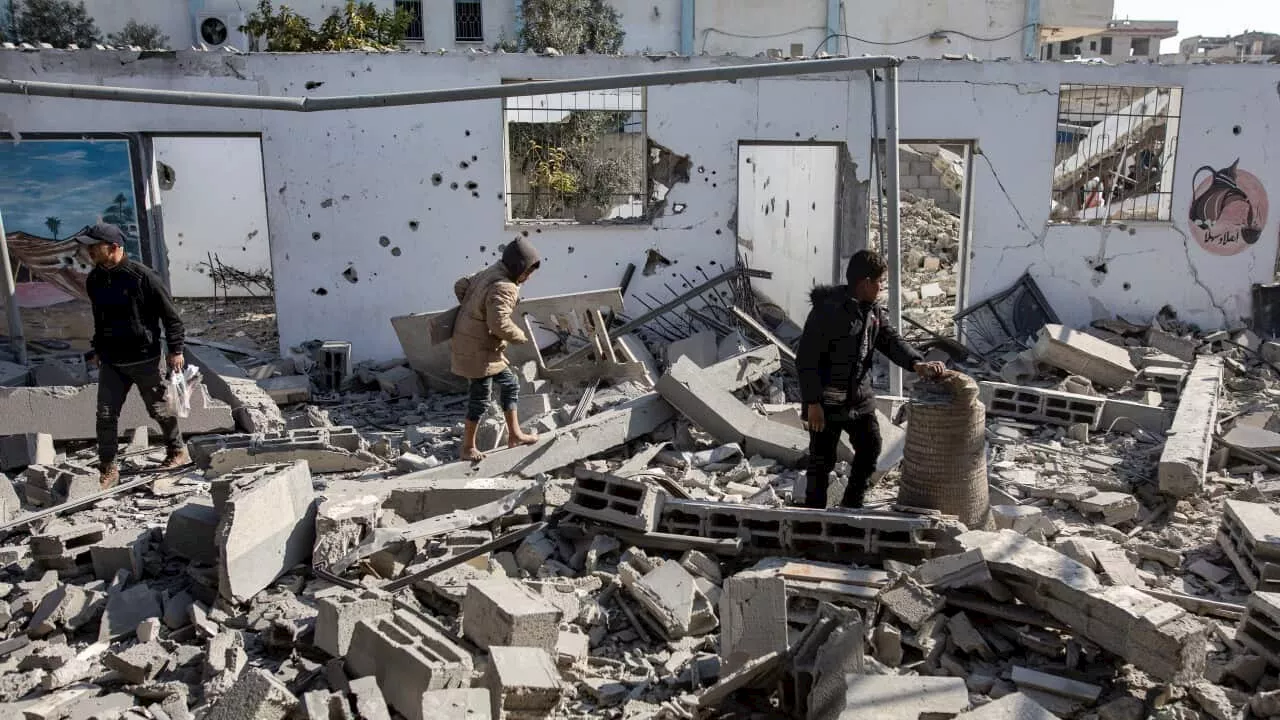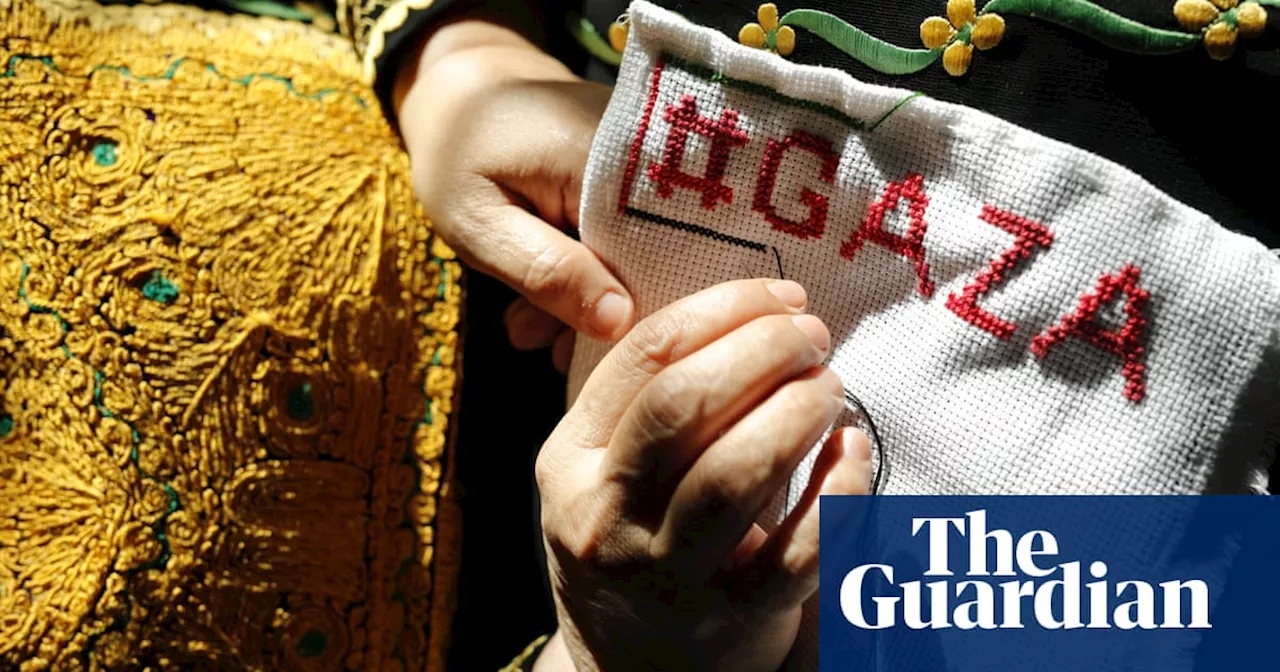The recent conflict in Gaza has had a devastating impact on the mental health of Palestinian refugees living in Jordan's Jerash camp. This article examines the profound psychological toll of the war, highlighting the soaring rates of depression, anxiety, and insomnia among women in the camp. It also explores the challenges faced by refugees in accessing mental healthcare and the enduring legacy of displacement and loss.
Among the hills of northern Jordan , three miles west of the Roman ruins of Jerash, a sprawling settlement is home to more than 11,500 Palestinians forcibly displaced from Gaza during the 1967 Arab-Israeli war. Jerash camp – known locally as Gaza camp – was intended as a temporary solution. The initial clusters of tents have since evolved into a more permanent settlement, where generations of refugees have grown up.
Jordan hosts the largest number of Palestinian refugees in the world and most of them, like those in Jerash camp, live in precarious conditions. Without national IDs, they cannot find work, own property or receive state benefits. More than 88% of people in Gaza camp do not have health insurance.One of the camp’s earliest inhabitants was Mokhtar Yahya, who arrived there as a baby. Born in Rafah a few weeks before the 1967 war broke out, his parents fled from Gaza to Jordan. They had sought refuge in Gaza camp firmly believing that their exile would be short-lived. But three generations of the family have now spent their entire lives in the camp. Now in his late 50s, Yahya and his family yearn to return to a homeland most of them have never seen. For Yahya, this ceasefire, after 465 days of war and 46,000 lives lost, is too late; 40 members of his family were killed during the war, their homes reduced to rubble. “For the past 15 months, we have been living in a constant state of panic,” says Yahya. “Each day just brought more bad news. For the residents of Gaza camp, this conflict has been psychological warfare. I don’t know a single person here that hasn’t been affected.”Dr Omar Gammoh, a professor at Yarmouk University in Jordan, has been studying the mental health of refugee populations for more than a decade. Since 7 October, he found alarming rates of severe depression (73%), anxiety (60%), and insomnia (65%) among the camp’s women. Men were excluded from the study as most did not want to take part. “The circulating violent content with scenes of mutilated bodies, bombarded homes and injured children has placed an immense psychological burden on these women,” says Gammoh. “Losing contact with family and friends, sometimes for months, further exacerbates their stress and anxiety levels.” Severe depression was significantly associated with prior diagnosis of chronic diseases, including diabetes and hypertension. “The crossover between mental health and chronic diseases is well established among war-displaced refugees,” says Dr Bilal al-Jaidi, who was involved in the research. “But our findings underscore the critical need for swift, targeted interventions to mitigate the profound impact this war has had on this vulnerable and overlooked population.” UNRWA, the United Nation’s Palestinian refugee agency, operates in Gaza camp and offers various mental health services, including screening, counselling, medication and a referral process. A spokesperson said mental health cases had consistently increased in the camp but stigma among the community remained a barrier to access. Unemployment and restrictions on movement make living with depression and chronic illnesses tougher – and many go without medication or specialised treatment that could help. Ola Ali Abdul, 43, has uterine cancer and could not afford private healthcare in Jordan. In August 2023, she travelled to Gaza, where surgery was cheaper, and had been on a waiting list when the conflict broke out; she then became stuck in the territory. “She told me to look after my siblings and that she would be back soon,” says 18-year-old Yousef Jaafar, Abdul’s eldest son. “But I worry we may never see her again.” The children’s father died four years ago after a stroke and so they were left in the care of their grandmother, Nimah. “They miss their mother and cry for her every day,” says Nimah.
Palestinian Refugees Mental Health Gaza Conflict Jerash Camp Jordan Displacement PTSD
Australia Latest News, Australia Headlines
Similar News:You can also read news stories similar to this one that we have collected from other news sources.
 Palestinian envoy predicts Labor will recognise Palestinian stateThe departing Palestinian ambassador to Australia predicts a re-elected Labor government would recognize a Palestinian state. He praised Labor for its stance on the Middle East, arguing it has repeatedly angered Israel and broken with the United States.
Palestinian envoy predicts Labor will recognise Palestinian stateThe departing Palestinian ambassador to Australia predicts a re-elected Labor government would recognize a Palestinian state. He praised Labor for its stance on the Middle East, arguing it has repeatedly angered Israel and broken with the United States.
Read more »
 Five Palestinian journalists killed in Israeli strike on van in Gaza, employer saysMen were asleep in marked press vehicle, say witnesses, as renewed hostage negotiations reach impasse
Five Palestinian journalists killed in Israeli strike on van in Gaza, employer saysMen were asleep in marked press vehicle, say witnesses, as renewed hostage negotiations reach impasse
Read more »
 Five Palestinian journalists reportedly killed in Gaza air strikes, as Israel labels them militantsIsrael's National Security Minister Itamar Ben Gvir visited Jerusalem's Al-Aqsa mosque compound on Thursday, sparking condemnation from the Palestinian Authority and Jordan.
Five Palestinian journalists reportedly killed in Gaza air strikes, as Israel labels them militantsIsrael's National Security Minister Itamar Ben Gvir visited Jerusalem's Al-Aqsa mosque compound on Thursday, sparking condemnation from the Palestinian Authority and Jordan.
Read more »
 Palestinian Mother Loses Husband and Son in Gaza WarA Palestinian mother, who is also a lecturer in physics, recounts the tragic loss of her husband and stepson during the recent Gaza war. The war forced her family to flee their home and seek refuge in a school.
Palestinian Mother Loses Husband and Son in Gaza WarA Palestinian mother, who is also a lecturer in physics, recounts the tragic loss of her husband and stepson during the recent Gaza war. The war forced her family to flee their home and seek refuge in a school.
Read more »
 Palestinian Mother Loses Husband and Stepson in Gaza WarA Palestinian mother, a university lecturer, recounts the devastating impact of the Gaza war on her family. She lost her first husband in a tragic accident and her second husband and stepson to a shell strike during the conflict.
Palestinian Mother Loses Husband and Stepson in Gaza WarA Palestinian mother, a university lecturer, recounts the devastating impact of the Gaza war on her family. She lost her first husband in a tragic accident and her second husband and stepson to a shell strike during the conflict.
Read more »
 Israeli airstrikes kill 68 in Gaza, Palestinian Authority suspends Al Jazeera from West BankIsraeli airstrikes killed at least 68 Palestinians across the Gaza Strip on Thursday, medics say, including Gaza's head of police and people in a tent encampment sheltering displaced families.
Israeli airstrikes kill 68 in Gaza, Palestinian Authority suspends Al Jazeera from West BankIsraeli airstrikes killed at least 68 Palestinians across the Gaza Strip on Thursday, medics say, including Gaza's head of police and people in a tent encampment sheltering displaced families.
Read more »
